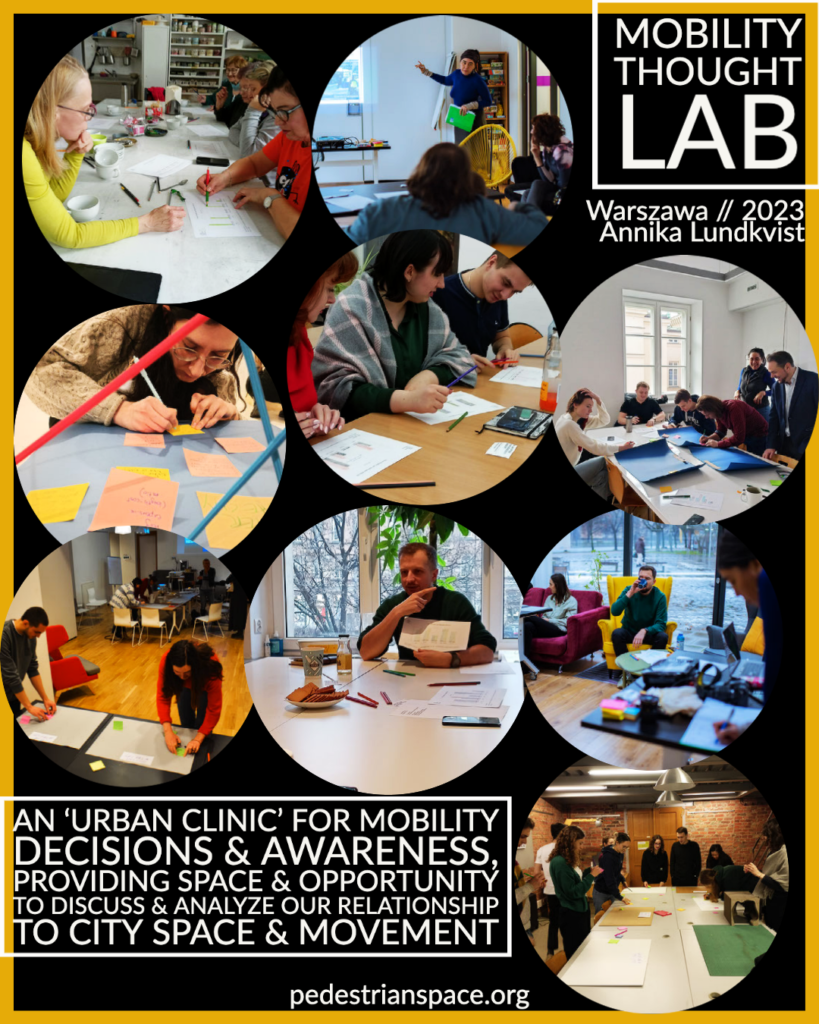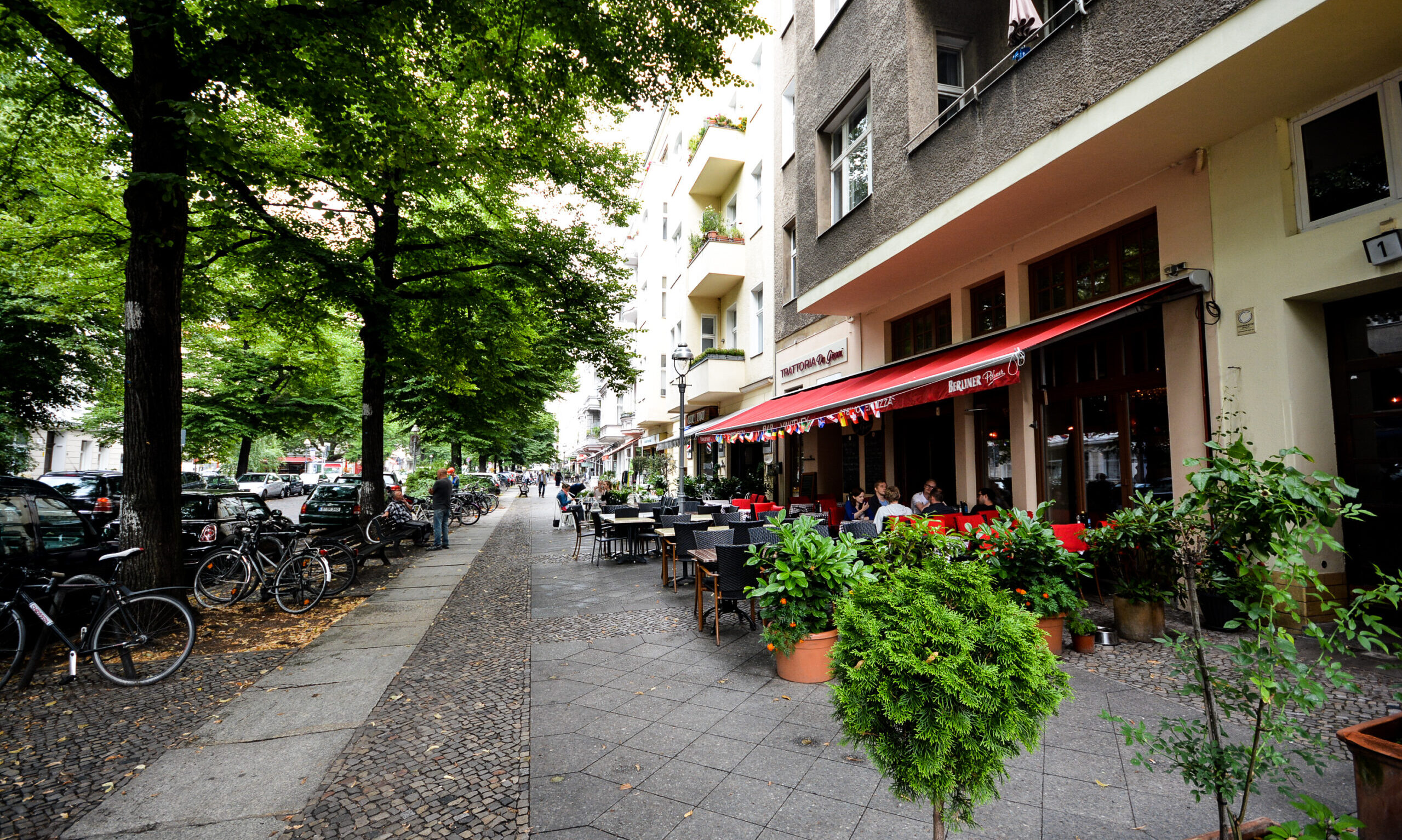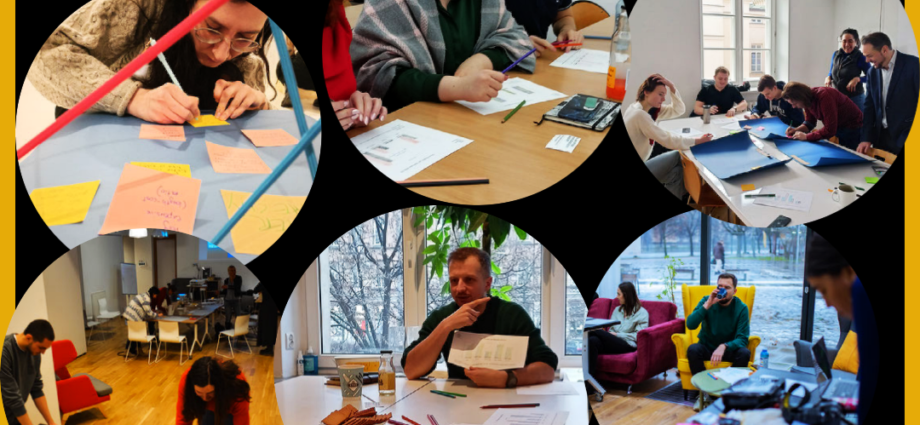I’ve been working on research summaries (‘field notes’) from my first 11 urban mobility workshops here in Warsaw before a new workshop cycle kicks in later this week.
I call my workshop approach here an ‘urban clinic‘ as the experiences offer participants the opportunity to share memories related to movement in the city, unpack issues of stigma and trauma related to certain mobility modes as well as issues of joy and of course explore issues of access and spatial equity as well.
In one workshop, a participant noted that her coworkers often stigmatize those who cycle or use public transit to get to work, asking them if they are too poor to drive.
In another workshop, participants shared about wanting to cycle but having so much fear due to road rage exhibited by drivers as well as lack of space and infrastructure.
In another workshop, a participant lamented that public transit is simply not well-connected enough in his suburban area for it to be a convenient choice.
In another workshop, a participant shared that smog often affects his decision to (not) take longer walks.
Those are some of the pain points that have come up. Many great, positive reflections are also shared- participants reflecting that Warsaw provides them with all the opportunities to walk and use public transit easily on a daily basis.
One professor who has hosted my workshop for one of his ‘Transportation and Mobility‘ debate seminars commented on the experience:
“The workshop is part of modern thinking about urban space. About climate and social challenges. Both officials and transport researchers often overlook pedestrian transport. This is why the workshop and the conclusions developed from it are particularly valuable for building a diagnosis and assessment of the needs of city dwellers, neighborhoods and local communities.” Dr. Jakub Majewski, EUROREG, University of Warsaw
Mobility Thought Lab: An ‘Urban Clinic’ for mobility decisions & awareness, providing space & opportunity to discuss & analyze our relationship to city space & movement // Warsaw, 2023 // Annika Lundkvist, Pedestrian Space //PhD student Polish Academy of Sciences


